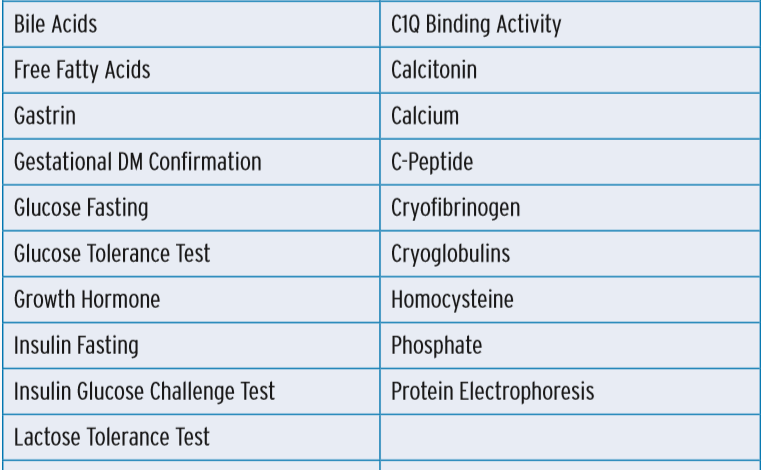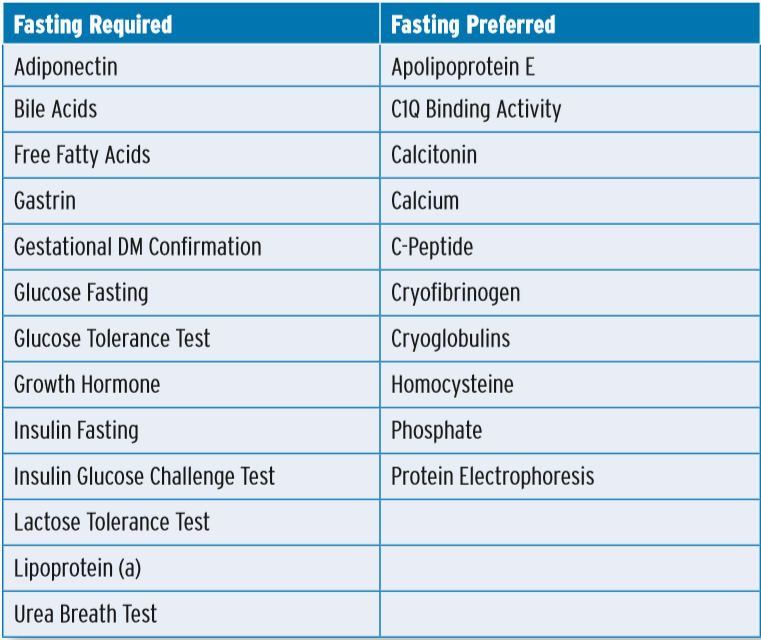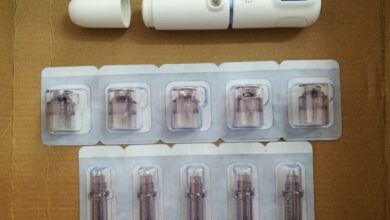
Why fasting blood tests are difficult for people with diabetes? Managing blood sugar levels consistently is a daily battle for those with diabetes, and the challenge extends to pre-test preparation. Maintaining stable glucose levels before a fasting blood test is crucial for accurate results, but it often requires meticulous planning, dietary adjustments, and careful consideration of medication schedules.
The process can be emotionally taxing as well, adding another layer of complexity to an already demanding condition. This in-depth look explores the physiological, practical, and emotional hurdles involved in preparing for and undergoing a fasting blood test for people with diabetes.
From the intricacies of blood glucose fluctuations throughout the day to the impact of stress and anxiety, this comprehensive guide delves into the multifaceted challenges of fasting blood tests for those with diabetes. We’ll explore the importance of pre-fasting preparation, discuss the role of medication, and provide practical strategies to navigate the emotional and logistical aspects of these crucial tests.
Understanding these challenges is key to improving the experience and ensuring accurate diagnoses for individuals with diabetes.
Challenges of Blood Glucose Management
Maintaining stable blood glucose levels is a constant battle for people with diabetes. The body’s intricate system for regulating blood sugar becomes disrupted, leading to unpredictable fluctuations. Understanding these fluctuations and their triggers is crucial for effectively managing diabetes and preparing for fasting blood tests.The physiological factors underlying these challenges are multifaceted. Insulin resistance, a condition where cells don’t respond properly to insulin, is a key player.
This resistance forces the body to produce more insulin, which can lead to a temporary surge in blood sugar followed by a subsequent drop. Other factors include impaired glucose production by the liver, and altered metabolism of fats and proteins, all contributing to the complexity of blood glucose regulation.
Physiological Factors Affecting Blood Glucose Stability
The body’s natural mechanisms for regulating blood glucose are often disrupted in people with diabetes. This disruption results in a variety of challenges, including fluctuations in blood glucose throughout the day. The intricate interplay of factors such as food intake, physical activity, stress, and even sleep patterns influences blood glucose levels in individuals with diabetes.
Blood Glucose Fluctuations Throughout the Day
Blood glucose levels in people with diabetes can fluctuate significantly throughout the day. These fluctuations are often unpredictable and can be influenced by numerous factors. For example, a meal high in carbohydrates can cause a rapid rise in blood glucose, while strenuous exercise can lead to a significant drop. Furthermore, stress hormones can also impact blood glucose levels.
Fasting blood tests are notoriously tricky for folks with diabetes, as maintaining a specific blood sugar level for the test can be challenging. It’s all about keeping those blood sugar levels stable, and it’s often a delicate balancing act. Plus, understanding the nuances of different types of cancers, like whether is colorectal cancer the same as colon cancer , is equally important.
Ultimately, getting accurate results for a fasting blood test requires careful preparation and sometimes a little extra patience, especially for people managing diabetes.
This unpredictability makes consistent blood glucose control, especially for fasting blood tests, a real challenge.
Impact of Food and Activity on Blood Glucose
Different foods and activities affect blood glucose levels in varying ways. High-glycemic index foods, such as white bread and sugary drinks, cause a rapid increase in blood glucose. Conversely, low-glycemic index foods, like vegetables and whole grains, lead to a more gradual and controlled rise. Physical activity, especially intense exercise, often lowers blood glucose levels. The combination of these factors makes maintaining consistent blood glucose levels a significant challenge for individuals with diabetes.
Typical Blood Glucose Responses to Meals
| Factor | Person with Diabetes | Person without Diabetes |
|---|---|---|
| High-glycemic index meal (e.g., white bread, sugary drinks) | Significant and prolonged rise in blood glucose, potentially followed by a drop | Moderate and temporary rise in blood glucose, returning to baseline quickly |
| Low-glycemic index meal (e.g., vegetables, whole grains) | Moderate rise in blood glucose, but potential for delayed or sustained elevation | Gradual and controlled rise in blood glucose, returning to baseline steadily |
| Physical activity | Potential for blood glucose drop, depending on intensity and duration | Minor and temporary drop in blood glucose, usually quickly restored |
Challenges in Achieving Optimal Fasting Blood Glucose Levels
Maintaining stable blood glucose levels for fasting blood tests is especially difficult. The goal is to achieve a fasting blood glucose level within the target range. This often requires meticulous meal planning, consistent medication schedules, and careful management of physical activity in the days leading up to the test. Unpredictable fluctuations in blood glucose, exacerbated by factors like stress or illness, can easily throw off the effort, making it hard to consistently achieve the desired optimal blood glucose levels for accurate fasting blood test results.
Impact of Pre-Test Preparation

Proper pre-fasting preparation is crucial for obtaining accurate fasting blood glucose readings, especially for individuals with diabetes. Irregularities in blood sugar levels before the test can significantly skew results, hindering effective management and potentially leading to unnecessary interventions or missed opportunities for improvement. Understanding the factors influencing pre-fasting blood glucose is essential for optimizing test accuracy and facilitating informed decision-making.Careful attention to pre-fasting practices can minimize fluctuations in blood glucose, thereby enhancing the reliability of the test results.
This allows for a more precise assessment of diabetes management and informs adjustments to treatment plans.
Importance of Pre-Fasting Preparation
Accurate fasting blood glucose measurements are vital for assessing diabetes control and adjusting treatment plans. Pre-fasting preparation significantly influences the accuracy of these measurements. Inconsistencies in blood glucose levels before the test can lead to inaccurate readings, potentially misrepresenting the individual’s overall blood sugar control.
Common Strategies for Pre-Fasting Blood Glucose Management
Maintaining consistent blood glucose levels before a fasting blood test involves a multifaceted approach. Strategies include adhering to a consistent meal schedule, ensuring adequate carbohydrate intake, and managing stress levels. These strategies collectively contribute to achieving stable blood glucose readings, enabling more accurate and reliable test results.
- Consistent Meal Schedule: A regular meal schedule helps regulate blood glucose levels throughout the day. Consistency minimizes fluctuations, promoting more stable readings before the fasting test. For example, a person who consistently eats breakfast, lunch, and dinner at the same time each day will likely experience less dramatic changes in blood glucose levels compared to someone with erratic meal times.
- Adequate Carbohydrate Intake: A balanced carbohydrate intake is crucial for maintaining stable blood glucose levels. Restricting carbohydrate intake excessively can lead to hypoglycemia, while overconsumption can result in hyperglycemia. Finding a balance is essential for stable pre-test readings. Individuals should consult with their healthcare providers to determine an appropriate carbohydrate intake plan.
- Stress Management: Stress significantly impacts blood glucose levels. High stress levels can lead to increased cortisol production, which in turn can raise blood sugar. Stress management techniques, such as relaxation exercises, meditation, and deep breathing, can help regulate blood glucose levels before a fasting test. For example, practicing mindfulness techniques during the days leading up to the test can help minimize stress-induced blood glucose fluctuations.
Comparison of Pre-Fasting Diets
Different pre-fasting diets can have varying effects on blood glucose levels. A diet high in simple carbohydrates, for instance, might lead to higher blood glucose levels compared to a diet rich in complex carbohydrates and fiber. A diet with a balanced distribution of macronutrients, including protein, carbohydrates, and fats, is often recommended for maintaining stable blood glucose levels before a fasting test.
| Diet Type | Potential Impact on Blood Glucose | Example |
|---|---|---|
| High in simple carbohydrates | Potentially higher blood glucose levels | Foods like white bread, sugary drinks, and processed snacks |
| High in complex carbohydrates and fiber | More stable blood glucose levels | Foods like whole grains, fruits, and vegetables |
| Balanced macronutrient distribution | Optimal blood glucose stability | Balanced meals including protein, carbohydrates, and fats |
Impact of Stress on Blood Glucose Before a Fasting Test
Stress significantly impacts blood glucose levels. Increased cortisol production, a physiological response to stress, can raise blood glucose. Individuals should prioritize stress management techniques to minimize fluctuations before the fasting blood test. Techniques like meditation, deep breathing exercises, or even listening to calming music can help maintain stable blood glucose levels.
Role of Medication in Maintaining Stable Blood Glucose Levels
Medications play a crucial role in maintaining stable blood glucose levels before a fasting blood test. Insulin and other diabetes medications should be taken according to the prescribed schedule to avoid unexpected fluctuations. Consistency in medication intake is critical for maintaining stable blood glucose levels. It’s essential to consult with a healthcare provider to determine the best approach to medication management before a fasting blood test.
Emotional and Psychological Factors
Dealing with diabetes often involves more than just managing blood sugar levels. The emotional and psychological toll can be significant, particularly when faced with the routine of blood tests. Anxiety and fear surrounding these procedures can impact not only the test results but also overall well-being. Understanding these factors is crucial for developing strategies to better manage the experience.The psychological stress associated with blood tests for individuals with diabetes stems from a combination of factors.
The very nature of the procedure can induce anxiety, from the preparation involved to the actual prick of the needle. For individuals with diabetes, these tests are often linked to their health management, potentially triggering feelings of vulnerability, fear of complications, or even a sense of being judged.
Psychological Stress and Blood Glucose Levels
Anxiety and fear can significantly impact blood glucose levels during a fasting blood test. The body’s stress response, triggered by these emotions, can lead to a surge in cortisol, a hormone that raises blood sugar. This can result in inaccurate readings and potentially complicate diabetes management. For example, a person experiencing significant anxiety might have a higher blood glucose reading than expected, misrepresenting their actual metabolic control.
Conversely, individuals with a pre-existing tendency toward low blood sugar (hypoglycemia) might experience a drop in blood sugar levels in response to the stress of the procedure.
Coping Mechanisms for Stress and Anxiety
Developing effective coping mechanisms is essential for managing stress and anxiety related to blood tests. These strategies can include deep breathing exercises, meditation, or progressive muscle relaxation techniques. Visualization exercises, focusing on a calming image or scenario, can also be very helpful. Positive self-talk and affirmations can reinforce a sense of control and confidence. Seeking support from friends, family, or support groups can provide emotional comfort and validation.
Creating a Positive Test-Taking Experience
A positive experience with blood tests can be fostered by taking a proactive approach. Educating oneself about the procedure, including the preparation steps and potential outcomes, can reduce uncertainty and anxiety. Communicating openly with healthcare professionals about concerns and feelings can build trust and ensure appropriate support. Creating a comfortable environment, whether at home or in a clinic, can make a difference in the overall experience.
For example, bringing a favorite book, listening to calming music, or engaging in a relaxing activity before the test can contribute to a more positive outlook.
Resources for Support and Guidance
Numerous resources offer support and guidance to individuals with diabetes undergoing blood tests. Diabetes support groups provide a platform for sharing experiences, gaining encouragement, and learning coping strategies from others. Registered dietitians and diabetes educators can offer valuable insights into managing blood glucose levels before and after tests. Mental health professionals can provide counseling and support to address underlying anxieties and stress related to diabetes management.
Fasting blood tests are tough for folks with diabetes, right? It’s all about maintaining a certain blood sugar level for accurate results. Imagine trying to keep your blood sugar stable for a test, similar to the challenge of keeping your bathroom clean when you know the shower curtain is a breeding ground for germs, as highlighted in this fascinating article about shower curtain contains most germs in your bathroom.
That constant vigilance is a real hurdle for people managing their diabetes. It’s a lot like maintaining a healthy balance in your life – sometimes the little things make a big difference.
- Diabetes Support Groups: These groups offer a safe space to connect with others facing similar challenges. Sharing experiences and coping mechanisms can provide a sense of community and support. Group discussions can also provide insight into the emotional impact of diabetes management.
- Diabetes Educators: These professionals can provide education and guidance on blood glucose management, including pre-test preparation strategies to minimize stress. They can also address specific concerns about the testing process.
- Mental Health Professionals: Counselors and therapists can provide support and coping strategies for anxiety and stress related to diabetes management. They can also offer techniques to address potential underlying mental health concerns.
Practical Considerations and Logistics
Fasting blood tests, crucial for diabetes management, often present significant practical challenges. Navigating the logistics, adhering to strict protocols, and understanding the impact of testing environment can be overwhelming for individuals living with diabetes. These hurdles, combined with the emotional and psychological factors already discussed, highlight the multifaceted nature of managing diabetes and accessing crucial medical information.The practical difficulties in adhering to fasting protocols are substantial.
Maintaining an adequate duration of fasting, particularly for those with busy schedules or irregular routines, can be exceptionally demanding. Furthermore, the logistical hurdles in arranging for fasting blood tests, including scheduling, transportation, and childcare, can create significant barriers to timely testing. Accurate timing for blood glucose measurements is paramount, as fluctuations can impact the interpretation of results.
These factors highlight the importance of clear communication between patients and healthcare providers regarding the specific requirements of fasting blood tests.
Difficulties in Adhering to Fasting Protocols
Many individuals with diabetes find it challenging to adhere to the precise fasting protocols required for accurate blood test results. The duration of fasting, often 8-12 hours, can be difficult for those with irregular schedules, multiple jobs, or childcare responsibilities. Maintaining a consistent fasting schedule can be challenging, particularly for individuals whose work or personal commitments necessitate frequent interruptions or deviations from their routine.
Furthermore, understanding and adhering to the specific dietary restrictions, including avoiding liquids, is crucial for reliable results, and can pose challenges, especially for those with varying eating habits.
Logistical Hurdles in Arranging Fasting Blood Tests
Scheduling fasting blood tests can be a logistical challenge. Finding a time slot that accommodates both the patient’s schedule and the availability of testing facilities is crucial. Transportation to and from the testing location can also be problematic, especially for those with limited mobility or those who rely on public transportation. Finding suitable childcare or support arrangements during the testing period can also be challenging, particularly for those who are parents or caregivers.
The availability of convenient testing locations is essential, considering both accessibility and proximity to patients’ homes or workplaces.
Importance of Accurate Timing for Blood Glucose Measurements
The timing of blood glucose measurements is critical for diabetes management and interpreting results. Variations in blood glucose levels throughout the day can significantly impact test outcomes. Pre-meal glucose levels differ from post-meal levels, and even small fluctuations within the fasting period can affect results. Maintaining a consistent time for testing throughout the week is recommended for better tracking of blood glucose trends and identifying patterns.
Impact of Testing Locations and Procedures
Different testing locations and procedures can influence test outcomes for people with diabetes. The environment, the staff’s familiarity with diabetes protocols, and the accuracy of the testing equipment can all play a role. For example, a noisy or stressful environment can increase stress hormones, potentially affecting blood glucose levels. Variations in testing procedures, such as the type of needle or blood collection technique, can also impact the accuracy of results.
Furthermore, the quality of the testing equipment and the training of personnel can affect the reliability of results. This underscores the importance of choosing a testing location with experienced staff, appropriate equipment, and a calm environment to ensure accurate results.
Common Issues and Potential Solutions to Logistical Challenges, Why fasting blood tests are difficult for people with diabetes
| Common Issue | Potential Solution |
|---|---|
| Inconsistent fasting schedules | Developing a structured routine, using reminders, or working with healthcare providers to adjust testing schedules |
| Transportation difficulties | Using ride-sharing services, arranging transportation assistance, or choosing testing facilities with convenient locations |
| Childcare responsibilities | Arranging for childcare, seeking support from family members, or considering testing facilities with extended hours |
| Limited access to convenient testing locations | Exploring alternative testing options, such as home blood glucose monitoring, or advocating for more accessible testing facilities |
Dietary Considerations: Why Fasting Blood Tests Are Difficult For People With Diabetes
Managing diabetes involves meticulous attention to diet, especially when preparing for fasting blood tests. Understanding how food choices impact blood glucose levels is crucial for achieving accurate results and overall health management. This section delves into the significance of dietary considerations for individuals with diabetes, focusing on the impact of different carbohydrates, meal timing, and the importance of consistent dietary patterns before fasting blood tests.
Impact of Food Choices on Blood Glucose Levels
Food choices directly influence blood glucose levels. Carbohydrates, in particular, play a significant role. Different types of carbohydrates have varying effects on blood sugar. Rapidly digested carbohydrates, like white bread and sugary drinks, cause a rapid rise in blood glucose. Slowly digested carbohydrates, such as whole grains and vegetables, lead to a more gradual and sustained release of glucose into the bloodstream.
Protein and fat also influence blood sugar, but their effect is typically less pronounced than carbohydrates.
Impact of Different Types of Carbohydrates on Blood Sugar Regulation
Carbohydrates are classified based on their impact on blood sugar. Simple carbohydrates, like table sugar and refined grains, are quickly broken down into glucose, leading to a rapid increase in blood sugar. Complex carbohydrates, such as whole grains, fruits, and vegetables, are digested more slowly, resulting in a more gradual rise in blood sugar. This difference in digestion speed is critical for individuals with diabetes, impacting how their bodies respond to meals.
Choosing complex carbohydrates over simple carbohydrates is generally beneficial for maintaining stable blood glucose levels.
Significance of Meal Timing Relative to Fasting Blood Tests
Timing meals in relation to fasting blood tests is essential. A fasting blood test requires a period of no food or drink intake (except water) for a specified duration, typically 8-12 hours. Consuming food or drinks during this period will affect the results, making them inaccurate and potentially misleading. The specific timeframe for fasting depends on the specific laboratory guidelines.
Adhering to the recommended fasting period is crucial for obtaining reliable and accurate blood glucose readings.
Importance of Maintaining a Consistent Dietary Pattern Before a Fasting Blood Test
Maintaining a consistent dietary pattern in the days leading up to a fasting blood test is critical for achieving stable blood glucose levels. Fluctuations in carbohydrate intake can impact blood sugar control. This consistency allows the body to regulate blood glucose more effectively, leading to more reliable results during the fasting blood test. A consistent pattern helps minimize variations in blood sugar levels.
Sample Meal Plan for Stable Blood Glucose Levels
This sample meal plan is designed to help achieve stable blood glucose levels before a fasting blood test. It focuses on complex carbohydrates, lean protein, and healthy fats.
Fasting blood tests can be a real pain for folks with diabetes, requiring strict adherence to hours of no food or drink. This often leads to significant anxiety and stress, mirroring the struggles faced by those with conditions like arthritis and IBS, which studies show are frequently linked to depression. Just like the emotional toll of managing diabetes can impact mental well-being, why common conditions like arthritis and IBS are linked to depression highlights how physical discomfort can manifest in emotional distress.
The difficulty in sticking to the fasting protocol for blood tests, coupled with the constant management of diabetes, can make these tests a significant hurdle.
| Meal | Description |
|---|---|
| Breakfast (Day Before & Day of Test) | Oatmeal with berries and nuts, or a small portion of whole-wheat toast with avocado and a poached egg. |
| Lunch (Day Before Test) | A salad with grilled chicken or fish, quinoa, and a light vinaigrette dressing. |
| Dinner (Day Before Test) | Baked salmon with roasted vegetables (broccoli, carrots, and sweet potatoes). |
| Snacks (Day Before & Day of Test) | Fruits (apple, banana, orange) or a small handful of almonds or walnuts. |
Note: This is a sample meal plan, and individual needs may vary. It’s crucial to consult with a healthcare professional or registered dietitian for personalized dietary recommendations.
Medication Interactions
Taking medications for diabetes can be complex, and understanding how they interact with each other, and with the process of preparing for a fasting blood glucose test, is crucial for accurate results. Many medications can influence blood sugar levels, sometimes significantly. This can lead to inaccurate readings if not managed carefully. A key aspect of successful blood glucose management involves careful communication with healthcare providers about all medications.
Potential Interactions
Diabetes medications, including insulin, oral hypoglycemics, and other drugs, can affect blood glucose levels. Some medications can lower blood sugar (hypoglycemics), while others can raise it (steroids, some diuretics). The impact of these medications on pre-test blood glucose levels can vary widely depending on the specific medication, dosage, and individual factors. This complexity underscores the importance of open communication between patients and healthcare providers.
Impact on Pre-Test Preparation
Proper communication with healthcare providers is essential for managing medication schedules in the days leading up to a fasting blood glucose test. Changes to medication dosages or timing may be necessary to ensure accurate results. For example, some medications may need to be temporarily adjusted or discontinued before the test. This process should always be guided by a healthcare professional.
Importance of Communication
Communicating with healthcare providers about medication schedules and any changes is paramount. This ensures that any necessary adjustments to medication regimens can be made in advance to minimize the impact on the accuracy of the blood glucose test results. Patients should be proactive in sharing their medication lists, including dosages and times of administration, with their healthcare provider.
This will help the provider determine the best course of action to ensure the test is performed accurately.
Examples of Impact
Consider a patient taking metformin for blood sugar control. If the patient needs a fasting blood glucose test, their doctor might recommend a temporary reduction or a change in the timing of their metformin dose in the days leading up to the test to avoid artificially lowering their blood sugar. Similarly, patients on corticosteroids for other conditions may experience a rise in blood sugar levels.
In this case, the healthcare provider might advise adjustments to the timing or dosage of their diabetes medications to mitigate this effect. These examples highlight the critical need for careful coordination between patients and their healthcare providers.
Table of Potential Medication-Related Issues and Recommendations
| Potential Medication-Related Issue | Recommendations |
|---|---|
| Medications that lower blood sugar (e.g., insulin, sulfonylureas) | Consult with healthcare provider to adjust dosage or timing in the days before the test to avoid hypoglycemia. |
| Medications that raise blood sugar (e.g., corticosteroids, thiazide diuretics) | Consult with healthcare provider to adjust dosage or timing to minimize impact on blood glucose levels. |
| Medications with unpredictable effects on blood sugar | Discuss with healthcare provider to determine the best course of action and potential adjustments to medication schedules. |
| New or recently adjusted medications | Inform healthcare provider about any new or recently adjusted medications to assess their potential impact on blood glucose levels and the fasting blood glucose test. |
Potential Test Results and Interpretations
Understanding your fasting blood glucose levels is crucial for managing diabetes effectively. These results provide insights into your body’s current glucose control and potential risks. Accurate interpretation, however, requires considering individual factors and the context of your overall health.Fasting blood glucose levels, as well as HbA1c, offer a snapshot of your body’s current and long-term glucose management. Variations in these results can arise from a variety of factors, including the specific test conditions, pre-test preparation, and individual physiological differences.
This section delves into the significance of these measurements and how to interpret the different ranges.
Factors Influencing Fasting Blood Glucose Levels
Several factors can influence the accuracy and interpretation of fasting blood glucose levels. Pre-test preparation, such as the timing of the last meal, hydration status, and level of physical activity, can all affect the results. The specific test conditions, such as the time of day the test is performed, also play a role. Individual factors like stress, medications, and underlying health conditions can also contribute to variations.
Significance of Blood Glucose Levels
Blood glucose levels reflect the amount of sugar in your blood. High levels can damage blood vessels and nerves, increasing the risk of complications such as heart disease, stroke, kidney disease, and nerve damage. Maintaining stable blood glucose levels is essential for preventing and managing these complications.
Blood Glucose Ranges and Interpretations
Blood glucose levels are typically categorized into different ranges, each with its implications.
- Normal Fasting Blood Glucose: A normal fasting blood glucose level typically falls below 100 mg/dL. This indicates that your body is effectively regulating blood sugar levels. This range usually suggests good overall metabolic function.
- Prediabetes Fasting Blood Glucose: A fasting blood glucose level between 100 mg/dL and 125 mg/dL suggests prediabetes. This indicates that your blood sugar levels are higher than normal, but not yet high enough to be diagnosed as diabetes. This range signifies an increased risk of developing diabetes, and proactive lifestyle changes are crucial for preventing the progression to diabetes.
- Diabetes Fasting Blood Glucose: A fasting blood glucose level of 126 mg/dL or higher on two separate tests indicates diabetes. This signifies that your body is unable to regulate blood sugar effectively. This requires careful management with medication, diet, and lifestyle changes to prevent complications.
Hemoglobin A1c (HbA1c) and Long-Term Glucose Control
HbA1c measures the average blood glucose levels over the past two to three months. This provides a more comprehensive picture of long-term glucose control compared to a single fasting blood glucose test. A higher HbA1c level generally indicates poorer glucose control over time.
- Normal HbA1c: A normal HbA1c level is typically below 5.7%. This suggests good long-term glucose control.
- Prediabetes HbA1c: An HbA1c level between 5.7% and 6.4% indicates prediabetes. This signifies an increased risk of developing type 2 diabetes.
- Diabetes HbA1c: An HbA1c level of 6.5% or higher on two separate tests indicates diabetes. This signifies a need for comprehensive management strategies.
Implications of Abnormal Blood Glucose Results
Abnormal blood glucose results, whether high or low, require further investigation and appropriate management. A healthcare professional can provide guidance on the next steps, including dietary modifications, medication adjustments, and lifestyle changes.
- High blood glucose levels can lead to various complications, including cardiovascular disease, kidney damage, nerve damage, and eye problems.
- Low blood glucose levels, while less common, can also be serious and require immediate medical attention. Symptoms include shakiness, sweating, and confusion.
Closing Notes

In conclusion, preparing for and undergoing a fasting blood test presents unique challenges for people with diabetes. This difficulty stems from the intricate interplay of physiological factors, pre-test preparation, emotional well-being, practical considerations, and dietary needs. While these tests are essential for monitoring health, the process can be emotionally and logistically demanding. By understanding the complexities involved, we can develop supportive strategies and resources to ensure accurate results and a positive experience for individuals with diabetes.





